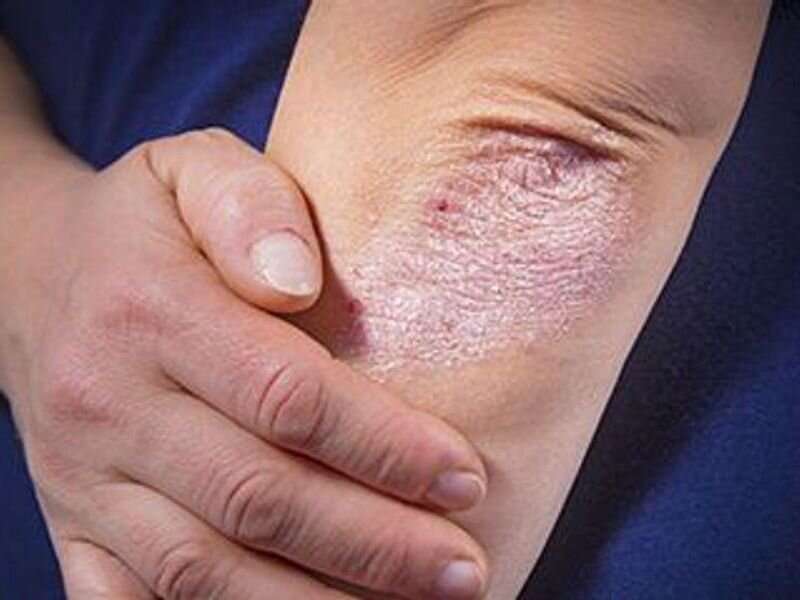
(HealthDay)—Deep learning algorithms, such as convolutional neural networks (CNNs), can automatically and objectively perform image-based Psoriasis Area and Severity Index (PASI) scoring, according to a study published in the January issue of the Journal of the European Academy of Dermatology and Venereology.
Mirjam J. Schaap, M.D., from Radbound University Medical Center in Nijmegen, Netherlands, and colleagues examined the performance of image-based automated PASI scoring in anatomical regions by CNNs. Imaging series were matched to PASI subscores determined by the treating physician. Using standardized imaging series of 576 trunk, 614 arm, and 541 leg regions, CNNs were trained; training was separate for each PASI subscore (erythema, desquamation, induration, and area) in each anatomical region. Agreement with scores determined by physicians in real-life assessments was ascertained with the intraclass correlation coefficient (ICC).
The researchers found that for the trunk region, the ICCs between the CNN and real-life scores were 0.616, 0.580, 0.580, and 0.793 for erythema, desquamation, induration, and area, respectively; similar results were seen for the leg and arm regions. For image-based PASI scoring of the trunk regions, five PASI-trained physicians were in moderate-to-good agreement with each other (ICCs, 0.706 to 0.793). Compared with image-based scoring by physicians, ICCs between the CNN and real-life scores were slightly higher for erythema (0.616 versus 0.558), induration (0.580 versus 0.573), and area scoring (0.793 versus 0.694); on desquamation scoring, physicians slightly outperformed the CNN (0.580 versus 0.589).
“In the future, automated PASI scoring could enable objective and efficient PASI scoring in (remote) clinical practice and clinical research,” the authors write.
Source: Read Full Article
